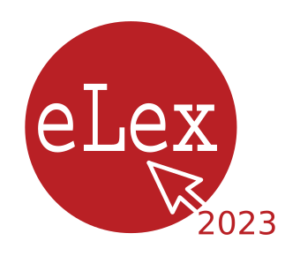This page contains a comprehensive list of presentations delivered at eLex 2023 – the conference on electronic lexicography in the 21st century – held in Brno, Czech Republic, 27–29 June 2023. The conference programme can be found here.
In addition to the presentations, there are video recordings available for viewing on either the direct link (Google Drive) or the eLex conference YouTube Channel.
List of presentations at the eLex 2023 conference
Keynotes:
- Using Register Analysis to Establish Style Markers in Dictionaries (Václav Cvrček) [direct video, YouTube]
- Lázaro: An automatic observatory of anglicism usage in the Spanish press (Elena Álvarez Mellad) [direct video, YouTube]
- Interoperable Words. Interlinking Lexical (and Textual) Resources for Latin in the LiLa Knowledge Base (Marco Passarotti) [direct video, YouTube]
- Invisible lexicographers, AI,& the future of the dictionary (Wendalyn Nichols) [direct video, YouTube]
Tuesday 27th June
- Ensuring vocabulary consistency for an under-resourced language with limited data (Sven-Erik Soosaar, Valts Ernštreits) [direct video, YouTube]
- Representing Ideology in Terminological Knowledge Bases (Pilar León-Araúz, Arianne Reimerink, Melania Cabezas-García and Pamela Faber) [direct video, YouTube]
- Actional properties of verbs in learner’s dictionaries’ entries (Sarah Piepkorn, Laura Giacomini) [direct video, YouTube]
- How Lexicographers Evaluate User Contributions in The Thesaurus of Modern Slovene in Comparison to Dictionary Users (Magdalena Gapsa, Špela Arhar Holdt) [direct video, YouTube]
- Dictionary with Code (Renaud Alexandre, Bruno Bon, Iwona Krawczyk, Krzysztof Nowak) [direct video, YouTube]
- The lexicographic process revisited (Annette Klosa-Kückelhaus, Carole Tiberius) [direct video, YouTube]
- Operationalising and Representing Conceptual Variation for a Corpus-driven Encyclopaedia (Santiago Chambó & Pilar Léon-Araúz) [direct video, YouTube]
- The Use of Lexicographic Resources in Croatian Primary and Secondary Education (Ana Ostroški Anić, Daria Lazić, Maja Matijević & Martina Pavić) [direct video, YouTube]
- The Open Dictionary Project (Tyler Nickerson) [direct video, YouTube]
- Collocations Dictionary of Modern Slovene 2.0 (Iztok Kosem, Špela Arhar Holdt, Polona Gantar, Simon Krek) [direct video, YouTube]
- Ceci n’est pas un dictionnaire (Sabine Tittel) [direct video, YouTube]
- Repository for the argument/adjunct distinction SARGADA: syntactic resource with a lexicographical background (Matea Birtić, Ivana Brač, Siniša Runjaić) [direct video, YouTube]
- Dicionário da Língua Portuguesa: a new lexicographic resource of Academia das Ciências de Lisboa (Ana Salgado, Alberto Simões, Álvaro Iriarte Sanromán, Rita Vieira, Manuela Ferreira, Rita Carmo, Conceição Pinheiro) [direct video, YouTube]
- Military Feminine Personal Nouns:Corpus-based Update to the Web Dictionary of Ukrainian Feminine Personal Nouns (Olena Synchak) [direct video, YouTube]
- What gooseberries, grapes and (bad) wine have in common? (Krzysztof Nowak, Dorota Mika, Ewa Rodek) [direct video, YouTube]
- The impact of invisible lexicography on the self-revision of academic English collocations (Tomasz Michta, Ana Frankenberg-Garcia) [direct video, YouTube]
- (Invisible) pictures in online dictionaries: Shall we see them? (Anna Dziemianko) [direct video, YouTube]
- The role of the invisible lexicographer in the compilation of the Slovene dictionary of abbreviations (Mojca Kompara Lukancic) [direct video, YouTube]
- Dark Side of the dictionary (Robert Lew, Sascha Wolfer) [direct video, YouTube]
- Invisible lexicography enhances machine translation (Ilan Kernerman) [direct video, YouTube]
- Invisible lexicography in Sepedi writing systems (Theo JD Bothma, Danie J Prinsloo) [direct video, YouTube]
- Invisible meaning relations for representing near equivalents (Arvi Tavast, Kristina Koppel, Margit Langemets, Silver Vapper, Madis Jürviste) [direct video, YouTube]
Wednesday 28th June
- The Central Word Register of the Danish Language (Thomas Widmann) [direct video, YouTube]
- Thesaurus of Modern Slovene 2.0 (Špela Arhar Holdt, Polona Gantar, Iztok Kosem, Eva Pori, Marko Robnik-Šikonja, Simon Krek) [direct video, YouTube]
- ELEXIS Dictionary Matrix in elexiLink (Tina Munda, Simon Krek, Iztok Kosem) [direct video, YouTube]
- From structured textual data to semantic linked data for Georgian verbal knowledge (Archil Elizbarashvili, Mireille Ducassé, Manana Khachidze, Magda Tsintsadze) [direct video, YouTube]
- Towards a lexical database of Dutch taboo language (Carole Tiberius) [direct video, YouTube]
- Humanitarian reports on ReliefWeb as a domain-specific corpus (Loryn Isaacs) [direct video, YouTube]
- Going Beyond Standard Ukrainian: How a Corpus Informs an E-Dictionary (Maria Shvedova, Vasyl Starko, Andriy Rysin) [direct video, YouTube]
- Rapid Ukrainian-English Dictionary Creation Using Post-Edited Corpus Data (Marek Blahuš, Michal Cukr, Ondřej Herman, Miloš Jakubíček, Vojtěch Kovář, Jan Kraus, Marek Medveď, Vlasta Ohlídalová, Vít Suchomel) [direct video, YouTube]
- From a dictionary towards the Hungarian Constructicon (Bálint Sass) [direct video, YouTube]
- Evaluation of the Cross-lingual Embedding Models from the Lexicographic Perspective (Michaela Denisová, Pavel Rychlý) [direct video, YouTube]
- Exploring the Capabilities of AI-Based ChatGPT for Lexicographical Purposes: A Comparison with Oxford English Learner’s Dictionary within the Microstructural Framework (Chayanon Phoodai, Richárd Rikk) [direct video, YouTube]
- Definition Extraction for Slovene: Patterns, Transformer Classifiers and ChatGPT (Hanh Thi Hong Tran, Vid Podpečan, Mateja Jemec Tomazin, Senja Pollak) [direct video, YouTube]
- Word Sense Induction for the Automatic Construction of a Valency Dictionaryof French Verbs (Naïma Hassert, François Lareau) [direct video, YouTube]
- The end of lexicography? Can ChatGPT outperform current tools for post-editing lexicography? (Miloš Jakubíček, Michael Rundell) [direct video, YouTube]
- Topic and Genre Classification of a Large English Web Corpus (Vít Suchomel, Jan Kraus) [direct video, YouTube]
- From experiments to an application – the first prototype of an adjective detector for Estonian (Geda Paulsen, Ene Vainik, Maria Tuulik, Ahti Lohk) [direct video, YouTube]
- Sketch Engine pre-processing pipelines: towards on-the-fly tokenization of user queries (Matúš Kostka, Marek Medveď) [direct video, YouTube]
- Corpus-based extraction of good example sentences with a high range of variation (Alexander Geyken, Ulf Hamster, Lothar Lemnitzer, Gregor Middell, Ji-Ung Lee, Iryna Gurevych) [direct video, YouTube]
- Improving second language reading through visual attention cues to corpus-based patterns (Kate Challis, Tom Drusa) [direct video, YouTube]
- Virtual lexicographic laboratory in linguistic researches based on the dictionary content (Yevhen Kupriianov, Iryna Ostapova, Volodymyr Shyrokov, Mykyta Yablochkov) [direct video, YouTube]
- A Search Engine for the Large Electronic Dictionary of the Ukrainian Language (VESUM) (Tamila Krashtan) [direct video, YouTube]
- A Federated Search and Retrieval Platform for Lexical Resources in Text+ and CLARIN (Thomas Eckart, Axel Herold, Erik Körner, Frank Wiegand) [direct video, YouTube]
- Teaching Digital Lexicography from Scratch: an Open-Source Tool for XML and HTML (Peter Meyer) [direct video, YouTube]
Thursday 30th June
- EDictViz: making dictionary content accessible for people with visual impairments (Geraint Paul Rees) [direct video, YouTube]
- Lexicographic considerations in the coding of inquisition transcripts of medieval Latin (Gideon Kotzé, David Zbíral, Robert L. J. Shaw) [direct video, YouTube]
- Research results and outcomes of the project “A Phraseographical Methodology and Model for an Online Corpus-Based Multilingual Collocations Dictionary Platform” (Adriane Orenha-Ottaiano, Maria Eugênia Olímpio, Carlos Roberto Valêncio, João Pedro Quadrado, José Manuel Pazos-Bretaña, Zonghmei Xiong) [direct video, YouTube]
- The SERBOVERB Language Resource and Its Multifunctionality (Saša Marjanović) [direct video, YouTube]
- Towards a comprehensive dictionary of Middle Persian (Francisco Mondaca, Kianoosh Rezania, Claes Neuefeind, Slavomír Čéplö) [direct video, YouTube]
- Development of Evidence-Based Grammars for Terminology Extraction in OneClick Terms (Marek Blahuš, Michal Cukr, Miloš Jakubíček, Vojtěch Kovář, Vít Suchomel) [direct video, YouTube]
- Unsupervised Sense Classification For Word Sketches (Ondřej Herman) [direct video, YouTube]
- Probing visualizations of neural word embeddings for lexicographic use (Ágoston Tóth, Esra Abdelzaher) [direct video, YouTube]
- Relations, relations everywhere: an introduction to the DMLex data model (Michal Měchura, Simon Krek, Carole Tiberius, Miloš Jakubíček, Tomaž Erjavec) [direct video, YouTube]
- DWDSmor A toolbox for morphological analysis and generation in German, based on the DWDS lexicon and an SMOR‐style grammar (Dr. Andreas Nolda) [direct video, YouTube]
- Meanma – an end-to-end, corpus-to-entry solution for historical lexicography (Mark Mcconville, Stevie Barrett) [direct video, YouTube]
- The Kosh Suite: A Framework for Searching and Retrieving Lexical Data Using APIs (Francisco Mondaca, Philip Schildkamp, Felix Rau, Luke Günther) [direct video, YouTube]
- An Unsupervised Approach to Characterize the Adjectival Microstructure in a Hungarian Monolingual Explanatory Dictionary (Enikő Héja, Noémi Ligeti-Nagy, László Simon, Veronika Lipp) [direct video, YouTube]
Elevator presentations
- From Russian to Ukraine (Vasyl Starko)
- Word-sense Induction on a Corpus of Buddhist Sanskrit literature (Matej Martinc, Andraž Pelicon, Senja Pollak, Ligeia Lugli)
- Establishing criteria and procedures to identify conventionalized similes in Croatian (Jelena Parizoska, Ivana Filipović Petrović, Kristina Kocijan)
- Neo 2020+ − A New Online Resource of German Neologisms (Merle Benter, Julia Pawels, Dr. Petra Storjohann)
- Novel Slovenian COVID-19 vocabulary from the perspective of naming possibilities and word formation
- Digital Cartography for Dialectal Loanwords (Peter Meyer, Gerd Hentschel)
- Automating Derivational Morphology for Slovenian (Tomaž Erjavec, Marko Pranjić, Andraž Pelicon, Boris Kern, Irena Stramljič Breznik, Senja Pollak)
- The impact of multiple corpus examples in English monolingual learners’ dictionaries on language production (Bartosz Ptasznik)
- Using Lexicography for Learning Mathematics (Theresa Kruse)
- Trawling the corpus for the overlooked lemmas
- Utilizing Natural Language Processing Technologies for Controlled Lexicon Building: A Pilot Study Focusing on English and Japanese Verbs (Daichi Yamaguchi, Hodai Sugino, Rei Miyata, Satoshi Sato)
- Development of a methodology and enhancements of lexicographical resources for an online Platform of Academic Collocations Dictionaries in Portuguese and English (Adriane Orenha-Ottaiano, Tanara Zingano Kuhn, Carlos R. Valêncio, João P. Quadrado, Stella E. O. Tagnin, Arnaldo Candido Júnior)
- Woordcombinaties (Lut Colman & Carole Tiberius)
- Tēzaurs.lv – the experience of building a multifunctional lexical resource (Mikus Grasmanis, Pēteris Paikens, Lauma Pretkalniņa, Laura Rituma, Laine Strankale, Artūrs Znotiņš, Normunds Grūzītis)





